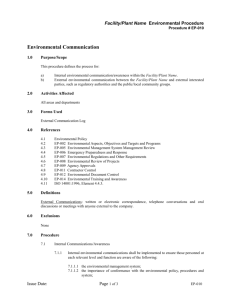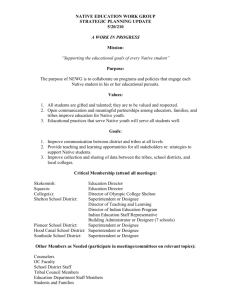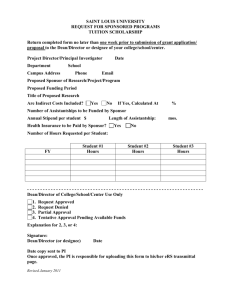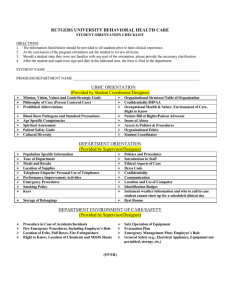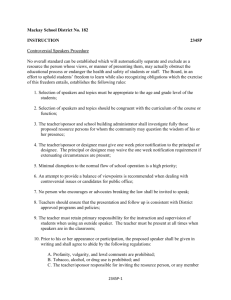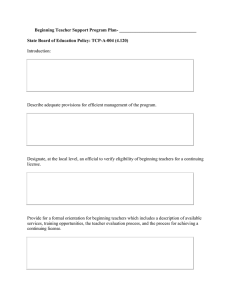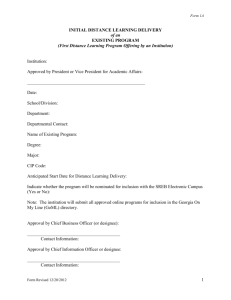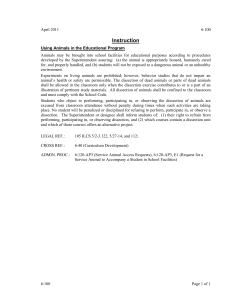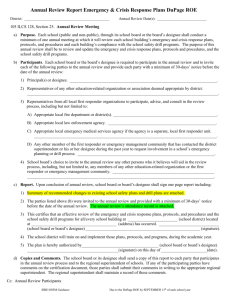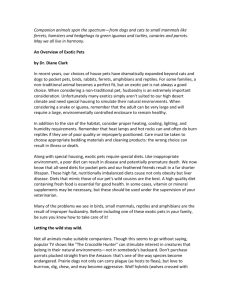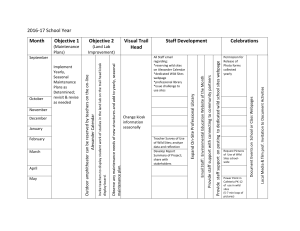Animals in Schools
advertisement
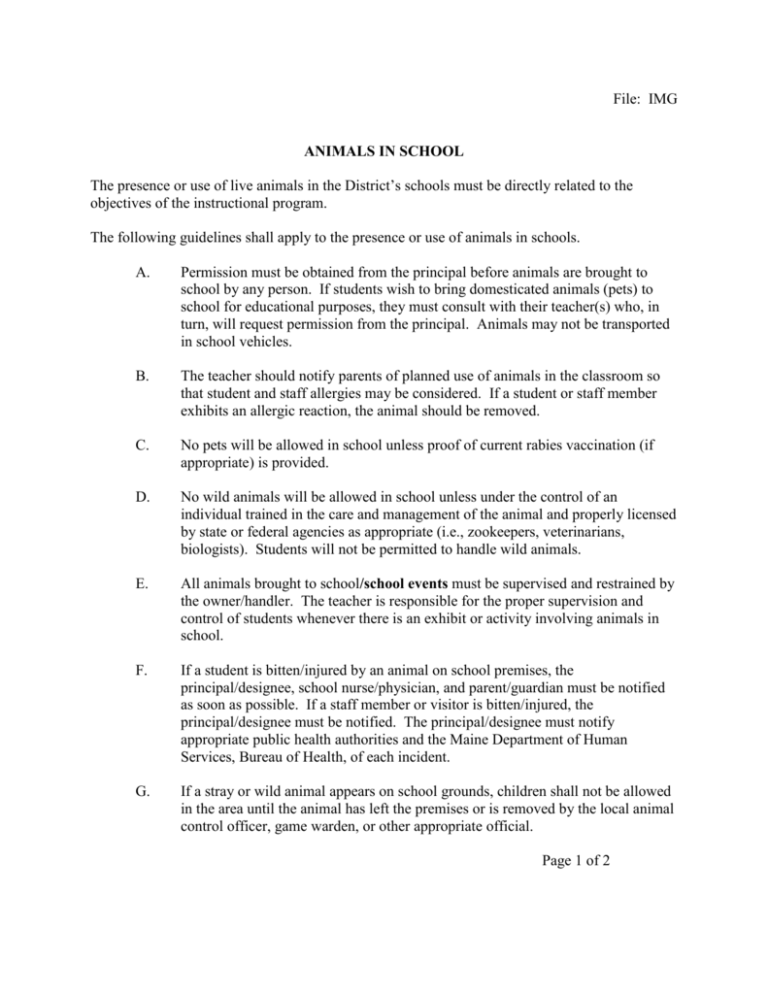
File: IMG ANIMALS IN SCHOOL The presence or use of live animals in the District’s schools must be directly related to the objectives of the instructional program. The following guidelines shall apply to the presence or use of animals in schools. A. Permission must be obtained from the principal before animals are brought to school by any person. If students wish to bring domesticated animals (pets) to school for educational purposes, they must consult with their teacher(s) who, in turn, will request permission from the principal. Animals may not be transported in school vehicles. B. The teacher should notify parents of planned use of animals in the classroom so that student and staff allergies may be considered. If a student or staff member exhibits an allergic reaction, the animal should be removed. C. No pets will be allowed in school unless proof of current rabies vaccination (if appropriate) is provided. D. No wild animals will be allowed in school unless under the control of an individual trained in the care and management of the animal and properly licensed by state or federal agencies as appropriate (i.e., zookeepers, veterinarians, biologists). Students will not be permitted to handle wild animals. E. All animals brought to school/school events must be supervised and restrained by the owner/handler. The teacher is responsible for the proper supervision and control of students whenever there is an exhibit or activity involving animals in school. F. If a student is bitten/injured by an animal on school premises, the principal/designee, school nurse/physician, and parent/guardian must be notified as soon as possible. If a staff member or visitor is bitten/injured, the principal/designee must be notified. The principal/designee must notify appropriate public health authorities and the Maine Department of Human Services, Bureau of Health, of each incident. G. If a stray or wild animal appears on school grounds, children shall not be allowed in the area until the animal has left the premises or is removed by the local animal control officer, game warden, or other appropriate official. Page 1 of 2 File: IMG H. Animals kept in classrooms must be housed in appropriate containers and cared for in a safe and humane manner. Only the teacher or students designated by the teacher are to handle these animals. If animals are to be kept in the classroom on days when classes are not in session, arrangements must be made for their adequate care at all times. I. No animal may be used as part of a scientific experiment or for any other purpose in which the normal health of the animal is interfered with or where pain or distress is caused. No person may practice vivisection or exhibit a vivisected animal in the schools. Dissection of dead animals shall be confined to the classroom and to the presence of students engaged in the study of dissection and shall not be for the purpose of exhibition. The MSAD #11 Board recognizes that service animals are used to assist individuals with disabilities. This policy does not apply to service animals that have been or are being specially trained for this purpose. The Superintendent/Section 509 Coordinator shall be responsible for developing a plan to incorporate the use of a service animal into the educational program of a student with a disability or to accommodate a school unit employee with a disability. Legal Reference: 7 MRSA § 3971 22 MRSA §§ 801-825 Cross Reference: JLCE - First Aid and Emergency Medical Care JLCE-R - First Aid Procedures Adopted: November 1997 Revised: May 3, 2007
